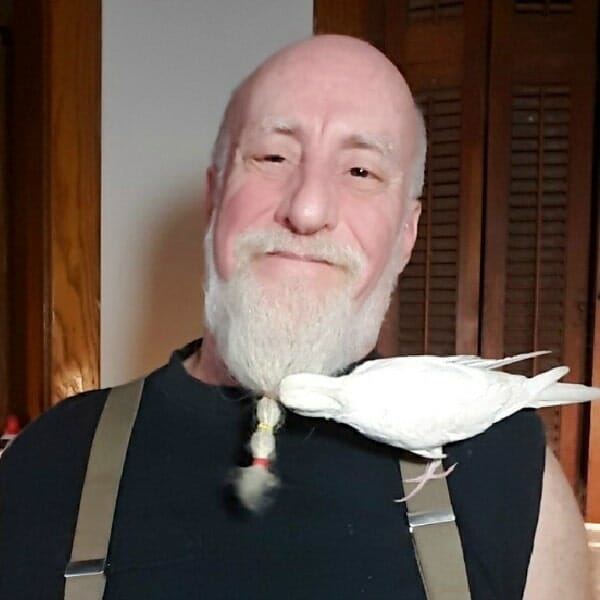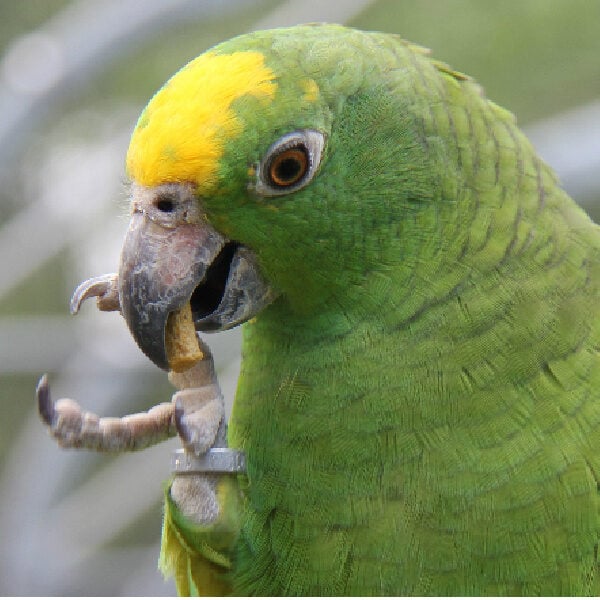Last Updated on by Mitch Rezman
It’s rare to find a product that benefits multiple species but Coconut oil is one of them. Are all coconut oils the same? No. the coconut oil we sell Coco Loro virgin coconut oil which is cold pressed from the meat of fresh coconuts. It is never cooked or smoked. It is also certified organic and is human food grade.
Here’s short list of coconut oil’s benefits:
add to food or drink for energy – assist in healing of skin injuries – combine with salt to rub on cracked heals – eliminate baby cradle cap – facial moisturizer – hair/beard dressing – lightens age spots – make up remover – massage oil – mixed with apple cider vinegar as a lice remover – mix with a drop of oregano oil for improved gum health – mix with sugar to make a body scrub – mouthwash – natural chap stick – nursing nipples to soothe irritation from nursing – put in food and drink for energy – reduces stretch marks while pregnant – shave cream – skin cream – smooths psoriasis or eczema – softens cuticles – sun block (spf 4) – use it as a cooking oil, has a high smoke point. Baking too! – yeast infections
Great for all species of birds
Avitech is the only FDA inspected facility dedicated solely to bird care products
Coco Loro virgin coconut oil is cold pressed from the meat of fresh coconuts. It is never cooked or smoked. It is also certified organic and is human food grade.
Coco Loro coconut oil can help support the immune system, maintain an active metabolism and provide inexpensive antimicrobial protection. Coco Loro is packaged in special Nalgene® bottles containing no PBA’s.
Coco loro coconut oil can provide the following benefits for your bird:
- Weight loss if needed
- Immune system support
- A healthy and active metabolism
- An excellent quick energy source
- A healthy supple skin and lustrous feathers
- Inexpensive antimicrobial protection
- A pleasant taste and aroma
- Can assist in the palatability of Red Palm Oil
Technical Specifications:
Color- White, Odor- Penetrating coconut aroma, Free Fatty Acids- 0.07%, Moisture- 0.06%, Peroxide Value- <0.1, Non-Saponifiables- N/A, Saponification Value- 252, Iodine Value- 7.0, Specific Gravity- 0.9, Melting Point – 77-79 degrees, Nutritional Profile (per 14 gm), Calories- 125, Fat- 14 gm, Cholesterol- 0 mg, Sodium- 0 mg, Carbohydrates- 0 mg, Protein- 0 mg
Fatty Acids
Caprylic- 5-9%, Capric- 6-11%, <spanstyle=”color: rgb(105,=”” 105,=”” 105);=”” font-family:=”” arial;=”” font-size:=”” 10pt;”=””>Lauric- 42-52%, Linoleic- 14%, Myristic- 13-20%, Oleic- 3-12%, Palmitic- 8-14%, Stearic- 1-3%
More Information:
Coconut oil has been an important part of diets in many parts of the world for centuries. Recent research has found that coconut oil has antimicrobial properties. It does not promote cardiovascular diseases and may be beneficial in their prevention and treatment.
A major constituent of unrefined coconut oil, lauric acid, has been found to be responsible for its antimicrobial effects. Lauric acid is also present in breast milk and is important for protecting infants from viral, bacterial or protozoal infections. Researchers looking for an inexpensive way to fight Candida infections have found coconut oil to be more effect in-vitro than Flucanosole, a potent prescription drug. Since Candida Albicans is the organism responsible for yeast infections in infant birds, a small amout of coconut oil added to hand feeding formula may provide some extra protection.
Unrefined coconut oil has been found to reduce cholesterol in high cholesterol individuals and improve cholesterol balance by increasing HDL and reducing LDL cholesterol. Coconut oil stimulates the thyroid gland and thus increases metabolism to consume more calories. Therefore, birds that are prone to become overweight on seed and nut diets (such as Amazons and African Greys) may benefit from coconut oil supplementation in their diet.
The weight-loss effect was noted many years ago when farmers tried to fatten animals more quickly by feeding coconut oil. The animals actually lost weight and became more muscular. The farmers raised fatter animals by switching to corn and soybean feed.
Meet the Avitech “family†of high quality nutritional supplements for birds. Our nutritional supplements address a wide spectrum of needs from feather conditioning to general nutritional supplementation and aids to prevent feather picking.
All of our products are bottled in our own plant to assure cleanliness and quality control.
Author Profile
Latest entries
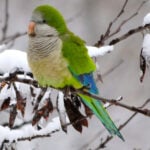 The Traveling BirdJune 26, 2025Can You Name 5 Parrot Species That Are Living Wild in the USA?
The Traveling BirdJune 26, 2025Can You Name 5 Parrot Species That Are Living Wild in the USA? Bird BehaviorJune 26, 2025How is it Parrots Are Problem Solvers Social Animals and Even Use Tools?
Bird BehaviorJune 26, 2025How is it Parrots Are Problem Solvers Social Animals and Even Use Tools?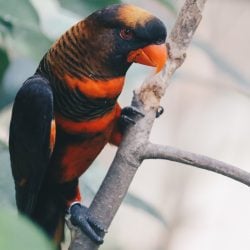 Bird & Parrot AnatomyJune 25, 2025How a Tiny Chemical Modification Makes Parrots Nature’s Living Paintings
Bird & Parrot AnatomyJune 25, 2025How a Tiny Chemical Modification Makes Parrots Nature’s Living Paintings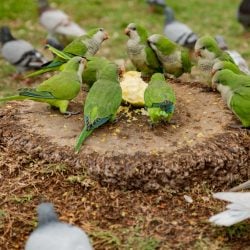 PigeonsJune 20, 2025How Do Parrots Thrive in Cities Outside Their Native Habitats?
PigeonsJune 20, 2025How Do Parrots Thrive in Cities Outside Their Native Habitats?
